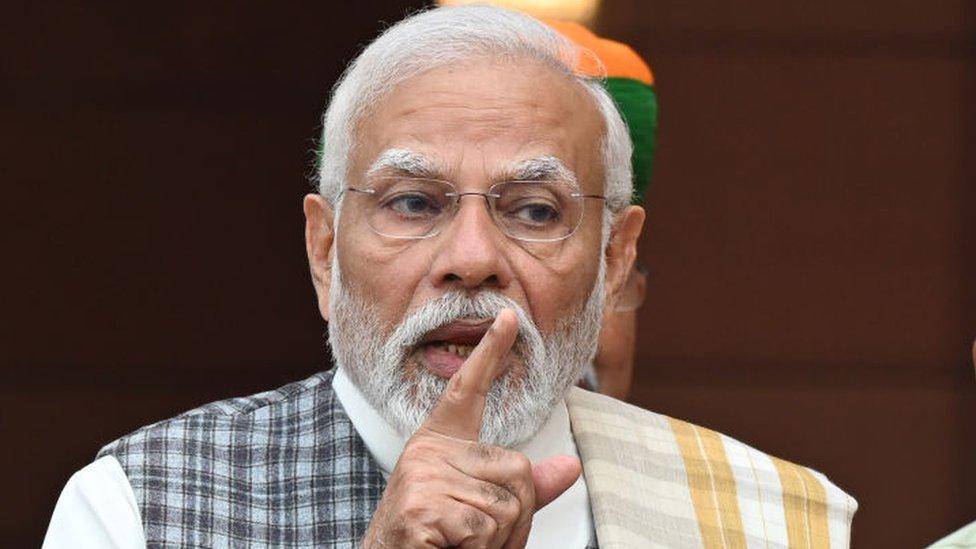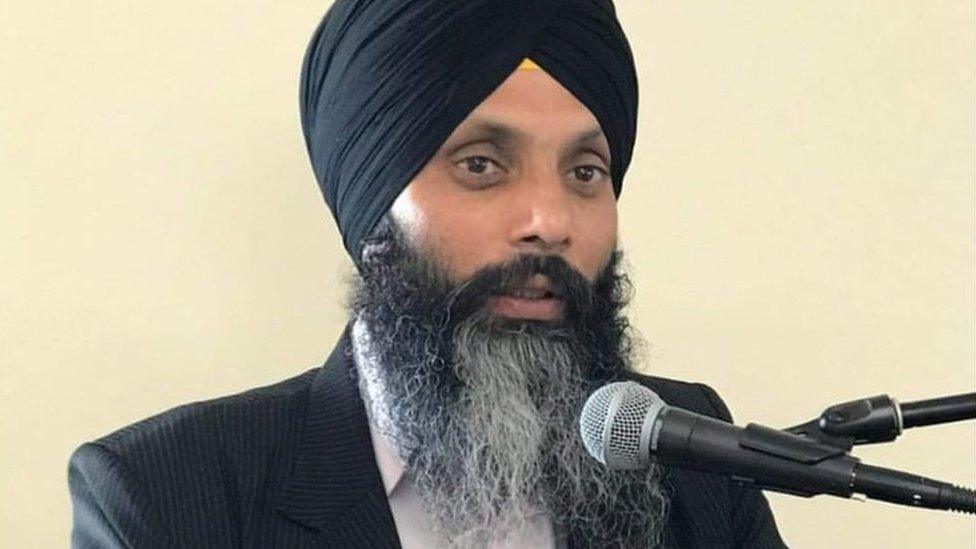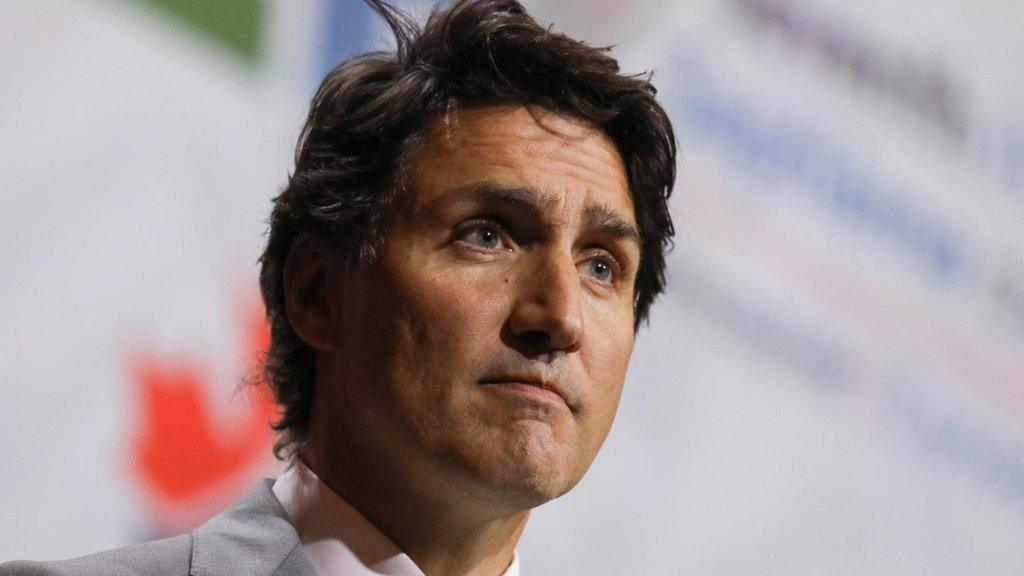Gurpatwant Singh Pannun: Narendra Modi breaks silence on US murder plot allegation
- Published

Mr Modi said the allegations won't affect India's ties with the US
Prime Minister Narendra Modi has said that India will "definitely look into" any evidence provided on its alleged links to an assassination plot in the US.
In November, the US charged an Indian man of conspiring to murder a Sikh separatist leader in New York.
Mr Modi told the Financial Times, external that the allegations will not affect ties between India and the US.
This is the first time he has spoken publicly about the issue.
"If a citizen of ours has done anything good or bad, we are ready to look into it. Our commitment is to the rule of law," the prime minister told the newspaper.
The target of the attempted assassination, Gurpatwant Singh Pannun, is a dual US-Canadian citizen who is a vocal supporter of the Khalistan movement which advocates for a separate Sikh state.
US prosecutors claimed that a man named Nikhil Gupta had paid $100,000 (£79,000) in cash to a hitman to assassinate Mr Pannun and that he was allegedly directed by an Indian government official.
India has designated Mr Pannun a terrorist, but he denies the allegation and says he's an activist.
The allegations came about two months after Canadian Prime Minister Justin Trudeau accused India of having links to the murder of another Sikh separatist leader named Hardeep Singh Nijjar.
Nijjar was shot dead outside a Sikh temple on 18 June in Canada.
India has strongly denied the allegations and accused Canada of providing shelter to "Khalistani terrorists and extremists" who threaten India's security.
Delhi has also repeatedly claimed that Ottawa has not yet shared concrete evidence to back the allegation.
The diplomatic row has damaged India-Canada ties.
In an interview with Canada's public broadcaster CBC, Mr Trudeau said he went public with the allegations against India after weeks of quiet diplomacy.
He said his aim was to "put a chill on India" and deter any alleged agents who were thinking of carrying out further attacks in Canada.
Mr Trudeau added that he had noticed a shift in tone from India after the US came forward with their own allegations.
"There's an understanding that maybe, maybe just churning out attacks against Canada isn't going to make this problem go away," he said.
The Indian government has often reacted sharply to demands by Sikh separatists in Western countries for Khalistan.
The Khalistan movement peaked in India in the 1980s with a violent insurgency centred in Sikh-majority Punjab state. It was quelled by force and has little resonance in India now, but is still popular among some in the Sikh diaspora in countries such as Canada, Australia and the UK.
Experts say that the recent accusations of extra-judicial killings of Sikh separatists threaten to dent India's ties with the US, which have been steadily growing.
However, Mr Modi told the Financial Times that he feels confident about the upward trajectory of the relationship.
"There is strong bipartisan support for the strengthening of this relationship, which is a clear indicator of a mature and stable partnership," he said."I don't think it is appropriate to link a few incidents with diplomatic relations between the two countries," he added.
He also said that India was concerned about the "activities of certain extremist groups based overseas".
BBC News India is now on YouTube. Click here, external to subscribe and watch our documentaries, explainers and features.

Read more India stories from the BBC:

Related topics
- Published30 November 2023

- Published19 September 2023
